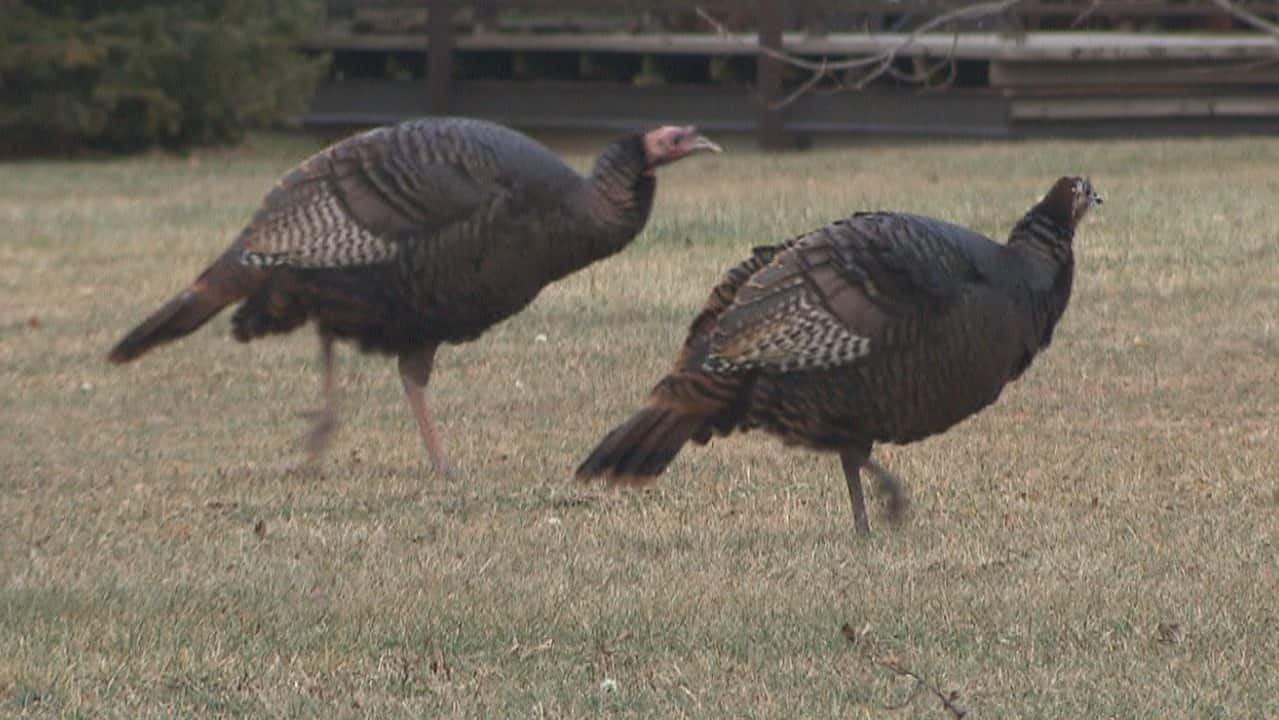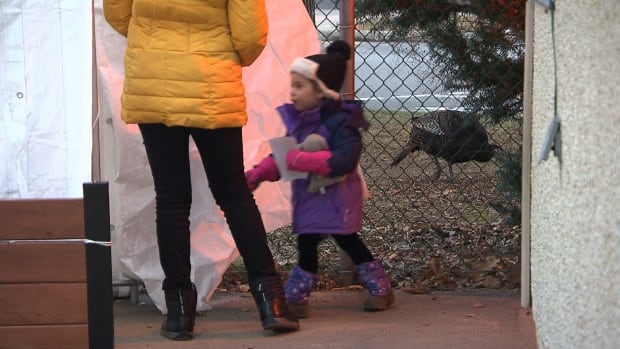
The playground at Domaine St-Sulpice, a daycare in northern Montreal, is usually filled with waddling toddlers, but lately the space has been gobbled up by an unwelcome visitor: the wild turkey.
And not just one of them. A flock of the birds have taken up residence — and toilet — in the yard, covering it with their excrement and wobbling around like they own the place.
“It was funny at first, but now it’s time for it to end,” said one mother, picking up her children at the publicly funded daycare on Antoine-Déat Street in Montreal’s Ahuntsic neighbourhood Wednesday evening.
WATCH | Stubborn wild turkeys take over Montreal daycare’s yard:
A Montreal daycare is under siege by a group of stubborn wild turkeys that have taken over the tree in the yard. The daycare has tried all manner of methods to kick the turkeys out, but the feathered flock keeps coming back.
The turkeys’ presence for the past month and a half has restricted the children’s area of play, said Josie Bouffard, a child educator at Domaine St-Sulpice.
But the biggest problem is the poo. Every morning, Bouffard and her colleagues collect about four litres of turkey excrement to prevent the children from touching it.
“It’s a big, big problem,” Bouffard said in an interview with CBC News. “The children cannot touch that and the children, they touch everything.“
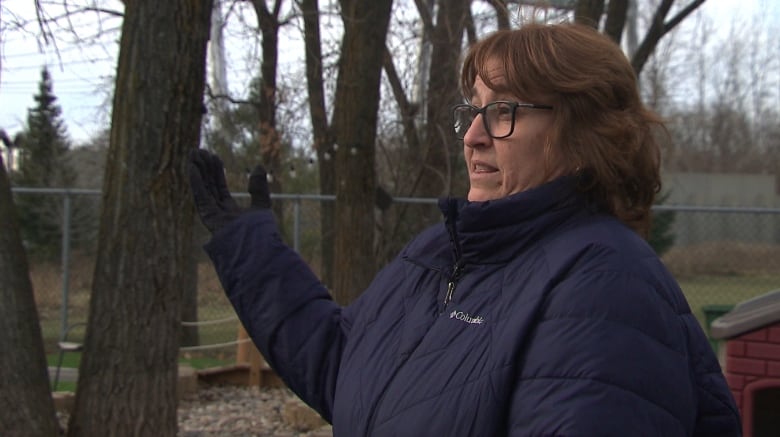
Wednesday evening, on a reporter’s visit to the daycare, it’s clear the turkeys have claimed it as their eminent domain. Two linger high on branches above; two more are on some grass near the road, unbothered by the coming and going of parents and their kids.
“They’ve adopted the place,” another parent says in passing.
The daycare employees have tried all manner of things to keep the turkeys out. They’ve spread wolf urine, set up bright lights, even installed an ultrasonic animal repellent.
But the fowl keep coming back and the daycare says it’s being given the runaround by different levels of government.
First, it asked the city of Montreal for help, which then referred it to Quebec’s Wildlife Ministry, which then referred it back to the city.
“We just want somebody to pick them up and put them far, far away. That’s it! We don’t want the turkeys anymore,” Bouffard said.
In a statement, a spokesperson for the borough of Ahuntsic-Cartierville said borough officials recommended the daycare reach out to the SPCA for help.
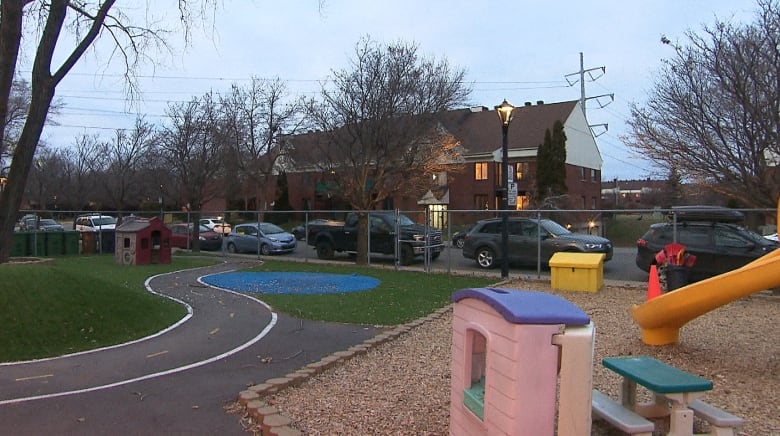
Brian Stevens, a pathologist at the Canadian Wildlife Health Cooperative, an organization monitoring the health of wildlife populations, says though any animal’s excrement can present health risks if ingested by humans, they are relatively low.
The birds have also so far avoided the effects of avian flu, Stevens said.
“Turkeys are a species that doesn’t carry a lot of diseases that are a big concern of people,” he said. “If this was another species, like songbirds, … there has definitely been concerns with songbirds passing salmonella on.”
More wild turkey in urban areas
Tadeusz Splawinski, a biologist at the Canadian Wild Turkey Federation, told CBC News earlier this year that more and more wild turkeys are ending up in urban settings and causing problems for humans.
Splawinski said wild turkeys thrive in suburban areas because there is easy access to food and few predators to keep them at bay. They’re able to scrounge for nuts in people’s gardens, come across bird feeders outside people’s homes and search through garbage cans, he said.
And when people feed them, they’ll stick around for even longer, he warned.
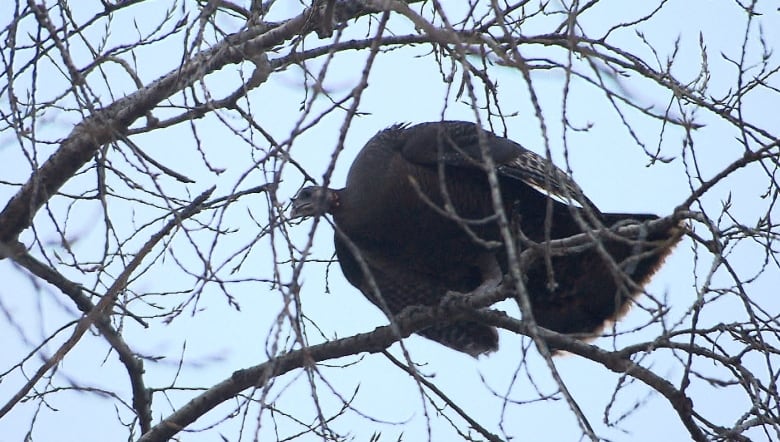
Turkeys and humans don’t necessarily live in harmony, though. Many turkeys have been spotted charging at cars, windows and even people.
“We could see more and more conflicts between humans and these birds,” Splawinski said.
As for Bouffard, she hopes that with the forecast snowstorm this weekend, the turkeys will finally retreat.
“Maybe after Christmas …” she said wistfully.
